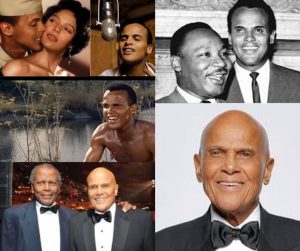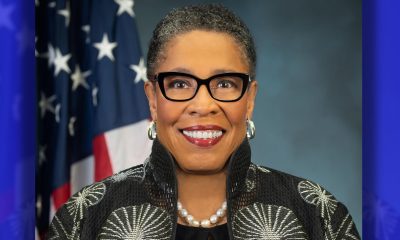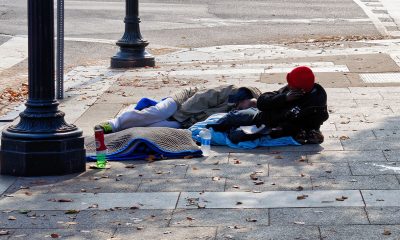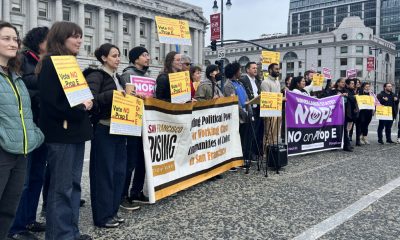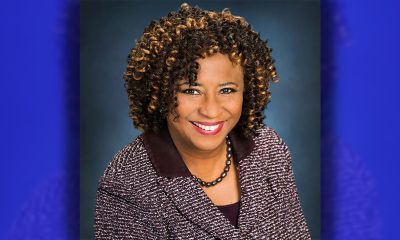Bay Area
This 4/20, California’s Famous Weed Culture Took A Hit, Too
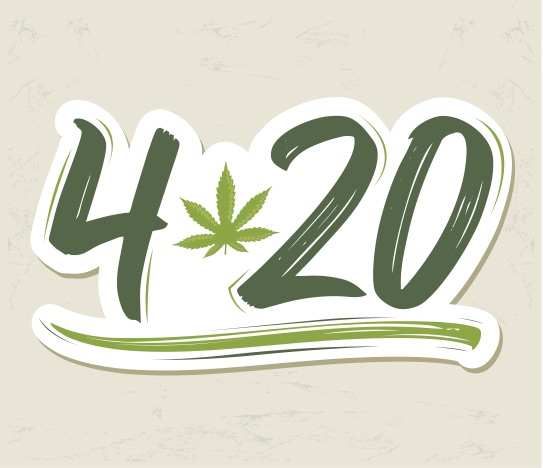
This week, marijuana enthusiasts across the state of California — and around the world are — observing 4/20/2020.
But, this year, the famous pot-smoking celebration in California, where the weed industry has been struggling to take off, has taken another twist. Like every other activity and public function, it will be happening, if it does at all, privately, away from public spaces, as the global COVID-19 pandemic that has now killed more than 1,000 Californians continues to rage.
San Francisco Mayor London Breed issued a statement urging people to continue practicing social distancing on 4/20.
“I want to be clear with people who (usually) come to San Francisco on 4/20 to Robin Williams Meadow to celebrate 4/20: Do not come to San Francisco,” warned Breed. “We will not allow this unsanctioned event to occur this year especially in the height of a pandemic,” she added.
But the excitement that was building up to this year’s celebration had already been cooled. Organizers of San Francisco’s “Hippie Hill” 4/20 celebration have cancelled the event.
“We take the health and safety of the public, our staff, vendors, and sponsors very seriously,” reads a message on Hippie Hill’s official website. “We feel it’s all of our responsibility to do our part to minimize social gathering and potential spread of this virus in the community.”
The 4/20 celebration usually takes place in Golden Gate Park, but this year organizers are urging people to stay home and smoke.
“While this event is cancelled in person, it is not cancelled in spirit! We want everyone to celebrate this historic day by staying in and supporting your local delivery services and dispensaries,” it says on the Hippie Hill website.
The unofficial “holiday” honoring the consumption of cannabis has become almost synonymous with California. Five high school students first coined the term “4:20” in 1971 at San Rafael High School in Marin County near San Francisco.
Hippie Hill, the largest annual public pot-smoking celebration in the world, has been held in San Francisco every year. Several more large festivals rivaling the Bay Area’s are held downstate around Los Angeles.
In pop culture, California rappers like Snoop Dogg, Dr. Dre and the late Nipsey Hussle – and 1990s urban movie classics like “Friday” — have popularized weed smoking and created a laid back, dazed-out hip hop weed aesthetic straight out of the stereos of tricked-out whips and against the backdrop of the hazy Southern California sunshine.
In 1996, California became the first state in the United States to legalize marijuana for medical purposes. Then in 2016, by a ballot measure, Prop 64, voters approved the use of recreational marijuana, prompting big investments in the state’s weed industry.
But the retail business has been slow to pick up — some say because of high state and local taxes, protests from NIMBYs, and stiff competition from a thriving untaxed illegal market that is more rooted and widespread than the legal one.
Prop 64 included in it a provision to establish the California Community Reinvestment Grant (CalCRG) program funded by excise and cultivation taxes on cannabis. The program funds programs that assist Californians disproportionately affected by federal and state War-on-Drug policies.
Among its programs, the grant helps formerly incarcerated people reintegrate into society with “trauma-informed” care. The majority of those impacted were Black and Hispanic men, women and children.
Even though the state has deemed weed an essential commodity during the COVID-19 crisis, the state’s weed industry is sputtering.
Some weed smokers have been excited that the unofficial observance of weed smoking is unique this year because the date has four twenties in it. Some putting forth the suggestion that entire month of April, which is technically 4/20, like the date, be celebrated this year.
“At 4:20 on 4/20/2020, there will be four twenties,” are the words on a sign rapper Snoop Dogg is holding on a meme making its way around the internet.
Activism
Oakland Post: Week of April 10 – 16, 2024
The printed Weekly Edition of the Oakland Post: Week of April 10 – 16, 2024

To enlarge your view of this issue, use the slider, magnifying glass icon or full page icon in the lower right corner of the browser window. ![]()
Activism
Oakland Post: Week of April 3 – 6, 2024
The printed Weekly Edition of the Oakland Post: Week of April 3 – 6, 2024
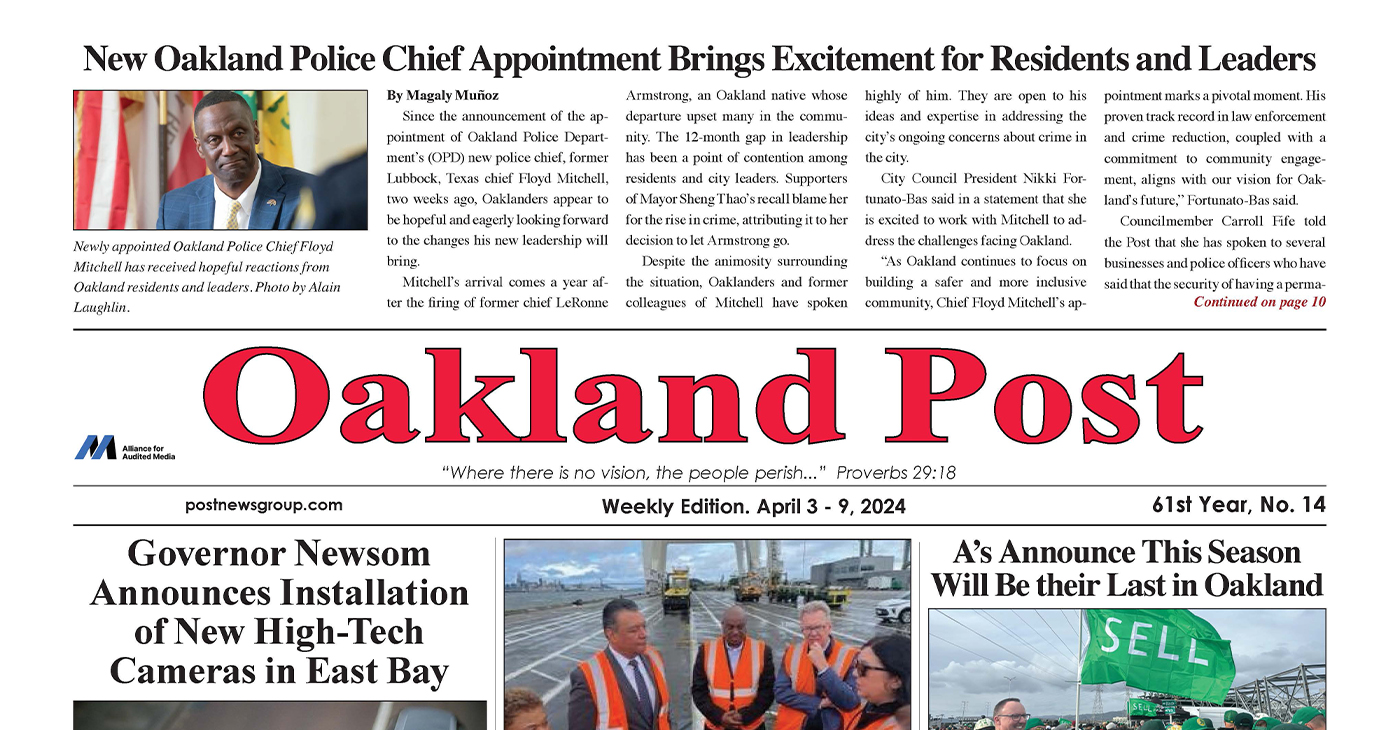
To enlarge your view of this issue, use the slider, magnifying glass icon or full page icon in the lower right corner of the browser window. ![]()
Activism
Oakland Post: Week of March 27 – April 2, 2024
The printed Weekly Edition of the Oakland Post: Week of March 27 – April 2, 2024
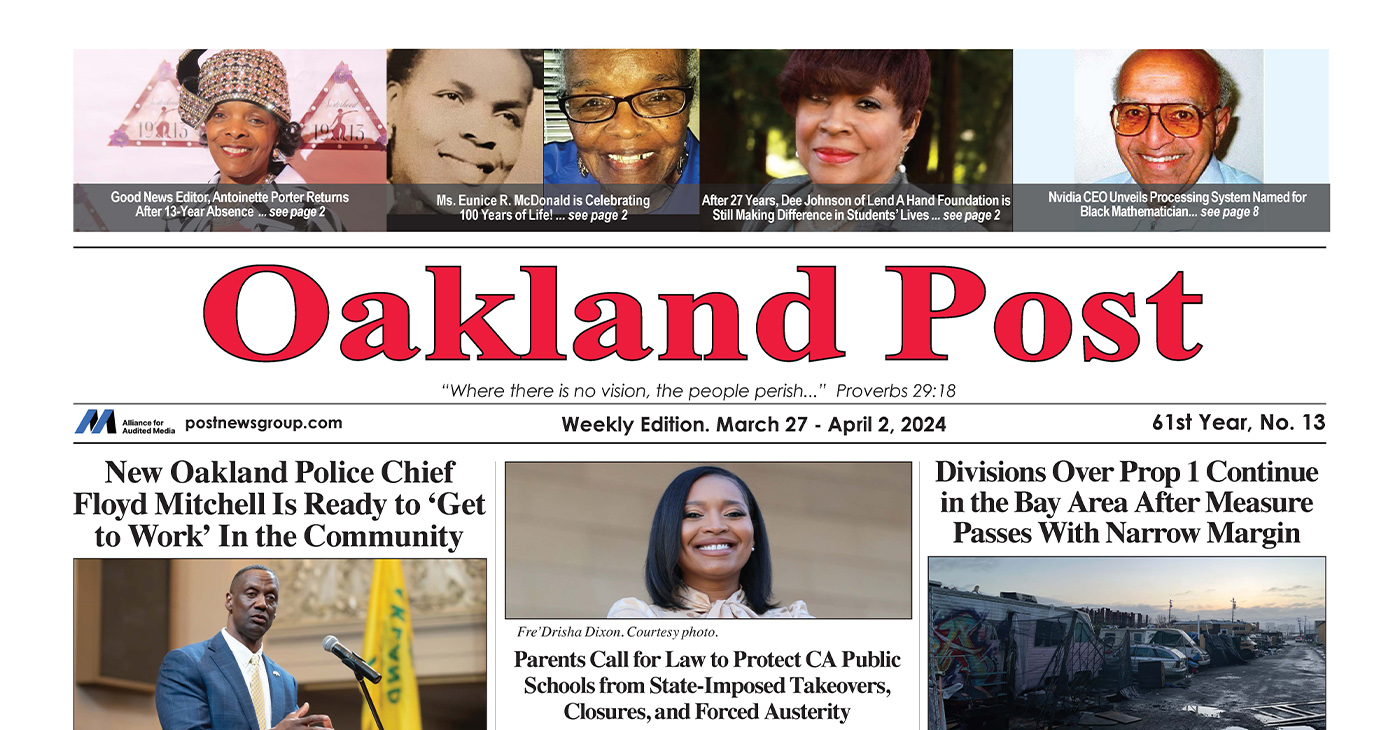
To enlarge your view of this issue, use the slider, magnifying glass icon or full page icon in the lower right corner of the browser window. ![]()
-

 Activism4 weeks ago
Activism4 weeks agoOakland Post: Week of March 20 – 26, 2024
-

 #NNPA BlackPress3 weeks ago
#NNPA BlackPress3 weeks agoMayor, City Council President React to May 31 Closing of Birmingham-Southern College
-

 #NNPA BlackPress3 weeks ago
#NNPA BlackPress3 weeks agoFrom Raids to Revelations: The Dark Turn in Sean ‘Diddy’ Combs’ Saga
-

 #NNPA BlackPress3 weeks ago
#NNPA BlackPress3 weeks agoCOMMENTARY: D.C. Crime Bill Fails to Address Root Causes of Violence and Incarceration
-

 #NNPA BlackPress3 weeks ago
#NNPA BlackPress3 weeks agoCOMMENTARY: Lady Day and The Lights!
-

 #NNPA BlackPress3 weeks ago
#NNPA BlackPress3 weeks agoBaltimore Key Bridge Catastrophe: A City’s Heartbreak and a Nation’s Alarm
-

 #NNPA BlackPress3 weeks ago
#NNPA BlackPress3 weeks agoBaltimore’s Key Bridge Struck by Ship, Collapses into Water
-

 Activism3 weeks ago
Activism3 weeks agoOakland Post: Week of March 27 – April 2, 2024

